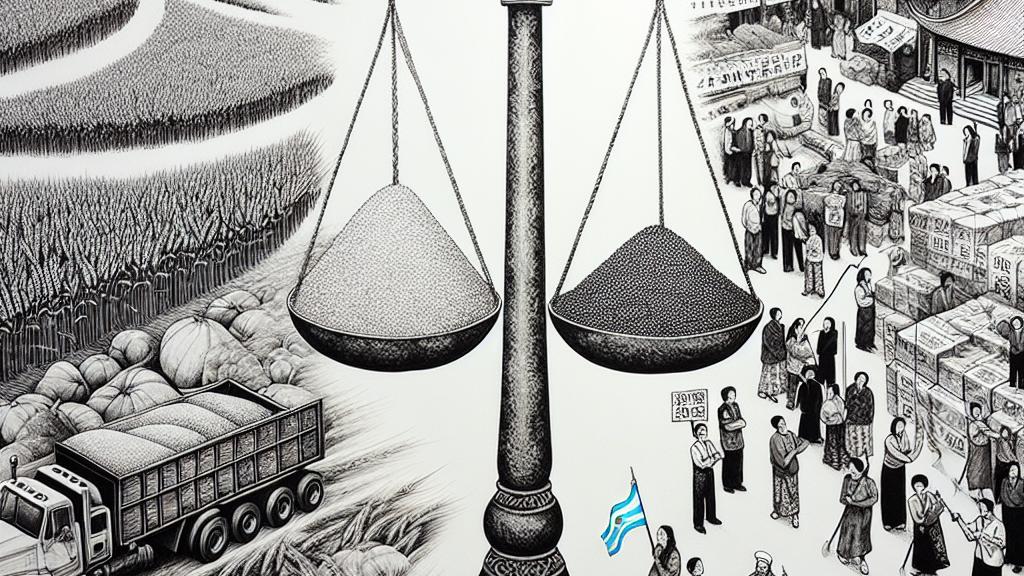China's Agricultural Trade Opportunities with Argentina
Overview
- Argentina's rekindled wheat export to China marks a transformative event in agricultural trade.
- This strategic shift comes as China seeks alternative food sources amidst escalating U.S. tensions.
- The partnership holds immense potential for revitalizing Argentina’s economy and enhancing agricultural growth.

A Historic Trade Reawakening
In a move that many view as groundbreaking, Argentina is set to export wheat to China for the first time since the 1990s. This upcoming shipment not only marks a significant recovery in trade relations but also underscores China's urgent need to diversify its food supply chains—especially as global tensions rise with the U.S. At present, China is the world's third-largest wheat importer, and with the country recently receiving over 12 million tonnes from various sources, Argentina's entry into this market could be a game-changer. This shift highlights how Argentina, one of the world’s largest wheat producers, is seizing an opportunity to stabilize its export economy amidst fluctuating global market conditions.
Unlocking Economic Prosperity
This trade opportunity could have profound economic implications for Argentina. Currently, agricultural exports constitute a substantial share of Argentina's GDP; therefore, establishing a stable relationship with China can pave the way for increased income and sustainability. Just imagine the impact on rural communities that heavily rely on agriculture for their livelihoods. This partnership has the potential to create thousands of jobs, enhance local economies, and even foster innovation in farming technology—for instance, by improving irrigation techniques to bolster wheat production. Argentina's commitment to providing quality products could result in agricultural advancements, benefiting not just the economy but also the environment.
Reconfiguring Global Trade Landscapes
As we look at the bigger picture, Argentina's partnership with China could reshape the landscape of global agriculture. The ongoing geopolitical tensions between the U.S. and China present alternatives for countries like Brazil and Argentina to step up and fill gaps in agricultural trade. For example, Brazil, with its rich agricultural resources, could enhance export volumes to China, fostering a network of interdependence within the Global South. This trend reflects an essential pivot towards strategic alliances that bolster food security. Ultimately, Argentina's burgeoning relationship with China is not merely about wheat; it signals a new era of collaborative agricultural policy that could transform how nations interact in the global market, opening doors to innovation, sustainability, and economic resilience.

Loading...